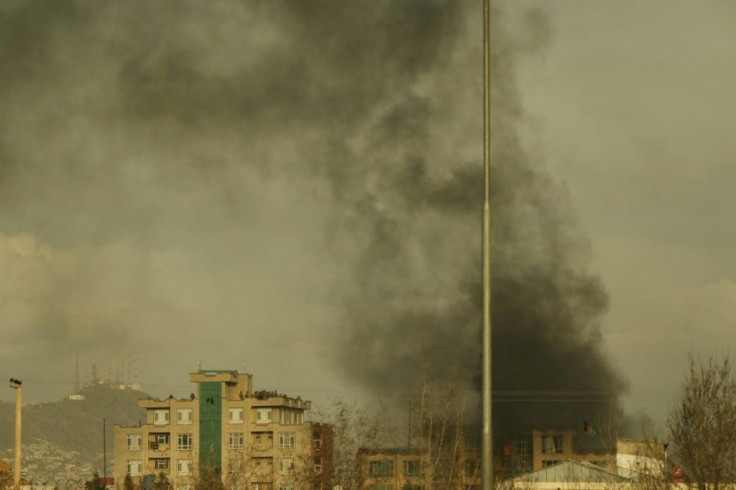Kabul Victims Describe Scenes Of Carnage After Attack

Kabul was reeling Saturday after Islamic State jihadists killed 32 people and wounded dozens more, with injured survivors describing scenes of terror as gunmen opened fire in the deadliest attack to hit Afghanistan since a US-Taliban deal.
The attack at a crowded gathering in the capital has raised questions about Afghanistan's abysmal security situation and uncertain future following the February 29 agreement to pull foreign forces from the country within 14 months.
Lying in a hospital bed in a run-down Kabul neighbourhood, 15-year-old Basira said she had attended Friday's annual commemoration ceremony for Abdul Ali Mazari -- a politician from the Hazara ethnic group -- for the first time, accompanied by her father and younger sister.
"We were in the middle of the ceremony when the gunfire erupted," she told AFP in a frail voice.
"It was non-stop firing for more than an hour," she said, describing chaotic scenes, with terrified people running for cover from the gunmen who appeared to be shooting at them from a height.
As shrapnel tore into her right leg, she lost consciousness and was brought to a nearby hospital, along with 28 other wounded.
Zamin Ali, who suffered a bullet wound, said hundreds of people had assembled to watch the ceremony, when the attackers began raining down gunfire.
"I saw... a dead child lying on the ground", the 60-year-old said.
"Everyone was fleeing... while the injured were pleading for help", he told AFP.
The Sunni-extremist IS had claimed an attack on the same ceremony last year, which killed 11, and have in the past targeted Hazaras who are predominantly Shiite Muslim.
Survivors expressed anger against the government for failing to improve security, with injured teenager Basira saying: "The political elites fled with their convoys and poor and innocent people were martyred and wounded".
Several top political officials were at the ceremony, including Afghanistan's chief executive Abdullah Abdullah. All were safely evacuated.
The devastating attack, which came days after the Taliban decided to halt a partial truce, ended a brief reprieve for Afghans weary of violence.
Organisers of an annual gathering to commemorate the death of former vice president Mohammad Qasim Fahim said they had cancelled the event scheduled for Sunday "because of the sensitive security situation".

The attack has cast doubt on whether the Taliban can stop groups such as IS from overrunning Afghanistan after foreign troops withdraw from the country in exchange for security guarantees and a pledge by the insurgents to hold talks with the Kabul government.
The Taliban have also ramped up attacks in the country, including one on Friday night in the contested western province of Herat, where they killed seven villagers including two children, government officials said.
"They opened fire on civilians killing seven and wounding 10," Jailani Farhad, spokesman for the provincial governor, told AFP.
Lal Mohammad Omarzai, chief of Robat Sangi district, where the shootings took place, said the insurgents were angry over the villagers' refusal to pay them money.
Although the Taliban are due to start talks with Kabul on Tuesday, a long-running dispute over a prisoner swap has cast doubt on whether negotiations will in fact begin as scheduled.
The US-Taliban accord includes a commitment to exchange 5,000 Taliban prisoners held by the Afghan government in return for 1,000 captives -- something the militants have cited as a prerequisite for talks but which President Ashraf Ghani has refused to do before negotiations start.
On Saturday, Ghani said his government was willing to free the Taliban prisoners if they do not return to violence, but did not reveal whether he would accede to the insurgents' demands to release them before talks open.
In a speech to parliament, Ghani said: "I, as the president, have no wish to have Taliban prisoners."
But he added that Afghan "people want guarantees that these released people won't go back to violence".
Apparent differences between the US-Taliban agreement signed in Qatar and a separate joint US-Afghan declaration made in Afghanistan underline the obstacles facing negotiators.
The Doha deal committed to the release of prisoners, while the Kabul document only required both sides to determine "the feasibility of releasing" captives.
© Copyright AFP 2024. All rights reserved.





















